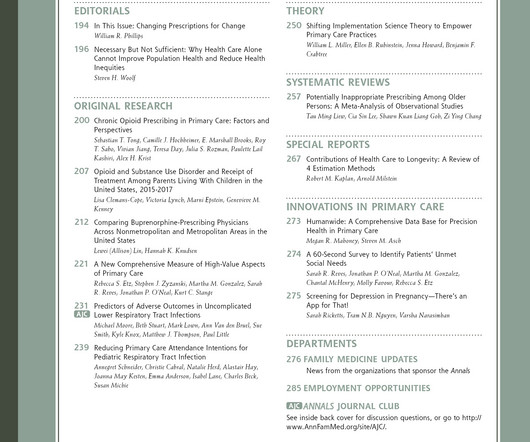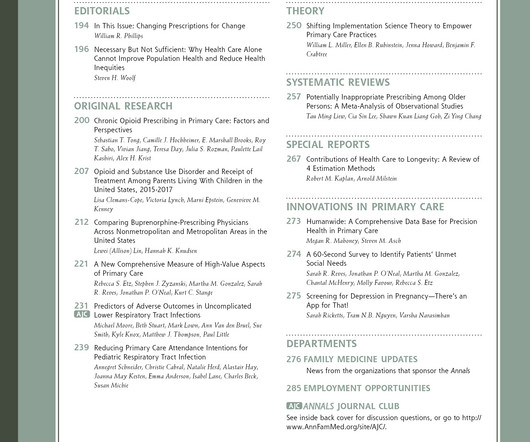Substance Use Disorder Screening in Adolescent Patients in Primary Care: Findings, Challenges, Lessons Learned [Behavioral, psychosocial, and mental illness]
Annals of Family Medicine
NOVEMBER 20, 2024
SUD screening is not universally done in primary care (PC). In our institution, screenings are completed for patients ≥15 years during well visits; those not presenting for well visits and under 15 may represent missed opportunities. A score ≥2 constitutes a positive screen for possible substance misuse.



















Let's personalize your content